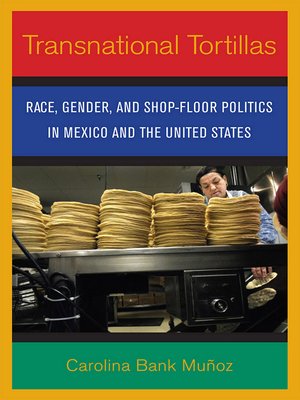Transnational Tortillas
ebook ∣ Race, Gender, and Shop-Floor Politics in Mexico and the United States
By Carolina Bank Muñoz

Sign up to save your library
With an OverDrive account, you can save your favorite libraries for at-a-glance information about availability. Find out more about OverDrive accounts.
Find this title in Libby, the library reading app by OverDrive.



Search for a digital library with this title
Title found at these libraries:
| Library Name | Distance |
|---|---|
| Loading... |
This book looks at the flip side of globalization: How does a company from the Global South behave differently when it also produces in the Global North? A Mexican tortilla company, "Tortimundo," has two production facilities within a hundred miles of each other, but on different sides of the U.S.-Mexico border. The workers at the two factories produce the same product with the same technology, but have significantly different work realities. This "global factory" gives Carolina Bank Muñoz an ideal opportunity to reveal how management regimes and company policy on each side of the border apply different strategies to exploit their respective workforces' vulnerabilities.
The author's in-depth ethnographic fieldwork shows that the U.S. factory is characterized by an "immigration regime" and the Mexican factory by a "gender regime." In the California factory, managers use state policy and laws related to immigration status to pit documented and undocumented workers against each other. Undocumented workers are subject to harsher punishment, night-shift work, and lower pay. In the Baja California factory, managers sexually harass women—who make up most of the workforce—and create divisions between light- and dark-skinned women, forcing them to compete for managerial attention, which they understand equates with job security.
In describing and analyzing the differences in working conditions between the two plants, Bank Muñoz provides important new insights into how, in a globalized economy, managerial strategies for labor control are determined by the interaction of state policies and labor market conditions with race, gender, and class at the point of production.







